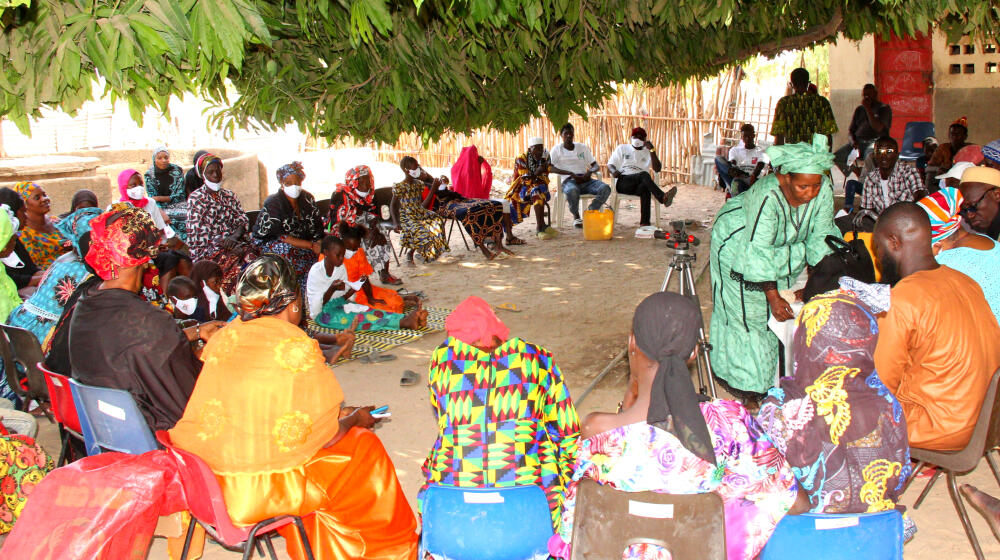Women-led community engagement is vital in steering conversations around Female Genital Mutilation (FGM), promoting the protection of human rights and the advancement of entire communities.
Aware of the power of women and their role in eradicating negative socio-cultural practices, UNFPA supported the Ministry of Women, Children and Social Welfare to strengthen the capacity of women’s groups. The training was aimed at promoting their meaningful engagement in decision making and positively transforming the status of women at community levels. Through this engagement, women empowerment volunteers trained 15 women’s groups on women empowerment modules focusing on decision making; prevention and protection from all forms of discrimination Sexual and Gender-based Violence; gender, gender equality and equity, gender relationships and mutual respect; conflict and peacebuilding; and men and women as agents of peace in promoting social cohesion.
Reaching women’s groups from all regions of The Gambia, the training sought to reach women furthest behind, to enhance their power and skills to meaningfully engage in community structures and have their voices heard and reflected in decision making processes. This will not only positively impact their lives but that of their families and communities, by highlighting their experiences, challenges, and concerns.
As a result of the training of the women’s groups, 9 out of 10 communities across the five regions of The Gambia have publicly declared their abandonment of FGM and have committed to promoting the health and empowerment of women and girls. They are now aware of the impact of harmful traditional practices and other forms of Gender-Based Violence on women and their communities and have charged themselves with the responsibility to create a safer place for women and girls to thrive.
When engaged on the impact of the training on the women in her community, one of the beneficiaries said “we have been empowered to recognise the value of keeping our daughters in school and protecting them from FGM and other forms of violence. We will now be able to break the cycle of poverty in our families.”
Collective abandonment is an effective way to end FGM and promote the heath and empowerment of women and girls. Through this and other initiatives, UNFPA continues to work with various partners to take steady and concrete steps to realise an FGM-free Gambia by 2030.
***
Media contact: Haddy Jonga – Programme Analyst, Communications jonga@unfpa.org


